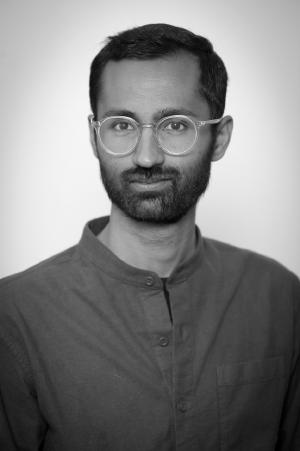You are here :
- EUTOPIA website
- Home
- Research & Innovation
- Fellowship
- SIF - Post-Doctoral Fellowships
SIF 3rd Cohort Fellows - Mantra Mukim, CY Cergy Paris University

Curriculum Vitae
- Education
September 2022: PhD in English and Comparative Literary Studies - University of Warwick (U.K.)
- Experience
2022-2023: Early Career Research - Fellow Institute of Advanced Studies, Warwick (U.K.)
In this fellowship, I further developed my research on lyric poetry, critical theory, and world literature and was able to present this research in international conferences and symposiums.
- Publications/Research achievements
[Article] 'Madhavrao Sapre at the Advent of Writing: Reading the 'First' Hindi Short Story', Interventions: International Journal of Postcolonial Studies. July, 2022.
[Book] Literature and Event: Twenty-First Century ReformulationsLink opens in a new window, co-edited with Derek Attridge, (Routledge, November 2021).
[Article] 'About Time: Rainer Maria Rilke and the Abyssal Distance of Duino ElegiesLink opens in a new window', in Textual Practice, August, 2021.
[Review] 'Beckett and the Terror of LiteratureLink opens in a new window', in Irish Studies Review, Volume 28, Issue 4, 2020.
[Book Chapter] 'After Naming: Rilke's Namenlos, Kant and the Subject of AestheticsLink opens in a new window', in Aftermath: The Fall and Rise After the Event, Ed. Robert Kusek, B. Piątek, and W. Szymański. Jagiellonian University Press, March, 2020.
Research Project:
Precarious Form: Life, Voice, and Work in Global Modernist Poetry (1945-2000)
This project focuses on Anglophone, Francophone, and Hindi modernist poetries that respond to questions of precarity and precariousness in the late twentieth century. It sets up a relationship between precarious living and writing, arguing that the historical changes, instabilities, and uncertainties that lead to global precariousness also shape modernist poetics. In studying issues of subjectivity, literary form, and poetic voice in a comparative framework, the project aims to illustrate the role of literature in not just representing or expressing precariousness but performing it and imagining a way beyond it. To this end, the project uses the term ‘Precarious Form’ to think of a multilingual modernist tradition that formally and thematically responds to the failures of capitalist and Cartesian modernity.


